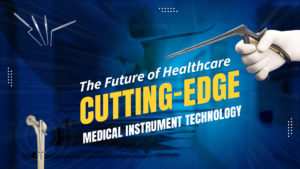Gone are the days when diagnosing a medical condition took weeks of waiting for lab results. Smart diagnostic tools are ushering in a new era of instant, accurate, and non-invasive diagnostics. Imagine a handheld device that can analyse your blood, detect pathogens, and provide a comprehensive health report in minutes. Such advancements not only expedite the diagnostic process but also make it accessible to remote and underserved areas, bridging the gap in healthcare delivery.
The operating room of the future will be a hub of technological marvels. Robotic-assisted surgery is already making waves, but the next generation of surgical robots promises even greater precision and control. These advanced systems can perform minimally invasive procedures with accuracy that surpasses human capability, reducing recovery times and improving patient outcomes. Surgeons will have access to real-time data and augmented reality, guiding their every move and making complex surgeries safer and more efficient.
3D printing technology is all set to transform personalised medicine. From custom-made implants that fit perfectly to an individual’s anatomy to bioprinting tissues and organs for transplants, the possibilities are endless. This technology ensures that medical solutions are tailored specifically to each patient, enhancing the effectiveness of treatments and reducing the risk of complications. The future of healthcare will see patients receiving implants and prosthetics that are not only functional but also uniquely suited to their bodies.
The COVID-19 pandemic accelerated the adoption of telehealth, but its potential is far from exhausted. Future advancements in telemedicine will integrate AI-driven diagnostics and wearable health monitors, allowing doctors to provide comprehensive care remotely. Patients with chronic conditions can be continuously monitored through smart devices, which send real-time data to healthcare providers. This constant flow of information enables proactive management of health issues, preventing complications and hospitalizations.
Artificial intelligence (AI) and machine learning are revolutionising the way we approach healthcare. These technologies can analyse vast amounts of data to identify patterns and predict outcomes, aiding in early diagnosis and personalised treatment plans. AI-powered systems will assist doctors in making more accurate decisions, reducing human error, and optimising patient care. From predicting disease outbreaks to developing new drugs, the integration of AI in medical instruments is set to transform every aspect of healthcare.
The future of healthcare isn’t just about technological advancements; it’s also about sustainability. Eco-friendly medical instruments made from biodegradable materials are being developed to reduce the environmental impact. Sustainable manufacturing practices, such as energy-efficient production and waste reduction, are becoming the norm. These innovations not only ensure the longevity of our planet but also contribute to the overall health and well-being of communities worldwide.
While technology is at the forefront of these innovations, the human element remains crucial. The collaboration between engineers, scientists, and medical professionals drives these advancements. Their shared vision and dedication ensure that technological solutions address real-world healthcare challenges. As we move forward, the synergy between human expertise and cutting-edge technology will continue to push the boundaries of what’s possible in healthcare.
The future of healthcare is bright, filled with promise and potential. Cutting-edge medical instrument technology is set to revolutionise how we diagnose, treat, and manage health, making it more precise, personalised, and accessible. As we embrace these innovations, we move closer to a world where healthcare is not only advanced but also equitable and sustainable.
visit our website now now to know more.

